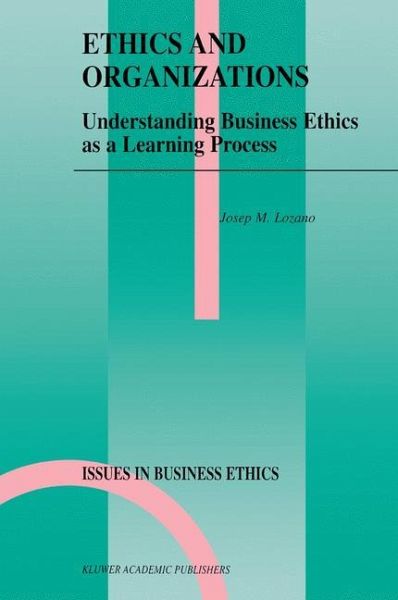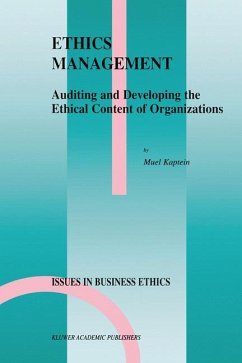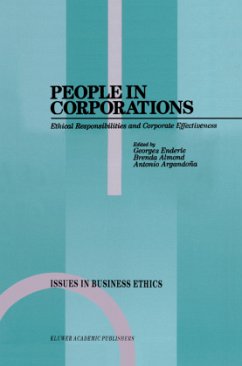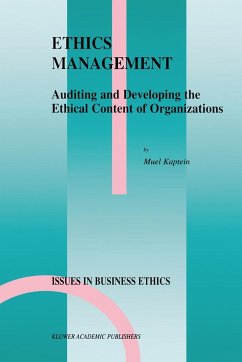
Ethics and Organizations
Understanding Business Ethics as a Learning Process
Versandkostenfrei!
Versandfertig in 1-2 Wochen
77,99 €
inkl. MwSt.
Weitere Ausgaben:

PAYBACK Punkte
39 °P sammeln!
This book is a study of the core issues in the field of business ethics from both an historical and a systematic standpoint. It analyzes corporate social responsibility, stakeholders, ethical codes, corporate cultures, and other issues. But the analysis takes place within a framework specially designed by the author in order to integrate the various dimensions of present-day business ethics. This integration is linked to an interpretation of business ethics as an organizational learning process in the context of the social and cultural changes caused by the emergence of a knowledge society. Th...
This book is a study of the core issues in the field of business ethics from both an historical and a systematic standpoint. It analyzes corporate social responsibility, stakeholders, ethical codes, corporate cultures, and other issues. But the analysis takes place within a framework specially designed by the author in order to integrate the various dimensions of present-day business ethics. This integration is linked to an interpretation of business ethics as an organizational learning process in the context of the social and cultural changes caused by the emergence of a knowledge society. This approach makes it possible to adopt a focus and language, which can simultaneously take into account ethical concerns and corporate and organizational development. A previous version of the book (written in Catalan) was awarded the 1998 Joan Sardà Dexeus prize for best book on corporate economics by the Catalan Association of Economists.














